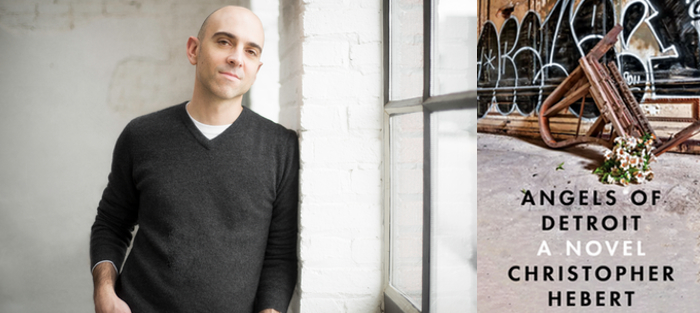Christopher Hebert’s most recent novel, Angels of Detroit (Bloomsbury), is a panoramic inquiry into the contemporary state of that city, once our nation’s engine of manufacturing. The sometimes apocalyptic feel of Hebert’s novel stems not from science fiction, but from a careful portrayal of Detroit’s very real apocalypse, its collapse, and—most surprising—its rapid, literal disappearance. Hebert takes us from the high to the low, and all between: immigrant smugglers, corporate titans, beached long-time residents, urban back-to-the-landers, and activists committed to making a last stand. It’s this last group that powers the story here, particularly McGee, their unofficial leader, an idealistic young woman from Detroit’s leafy suburbs. One of the most admirable traits in this book is its extreme even-handedness, its commitment to portraying its characters truly and deeply, critically but never dismissively. We come to see how a series of small decisions—not blameless, but often understandable—can cascade into the gutting of a great city. We also see how the absurdly difficult, quixotic struggle to put the city back together can give a life meaning.
In addition to Angels of Detroit, Hebert is the author of The Boiling Season (HarperCollins, 2012), winner of the 2013 Friends of American Writers award. He is also co-editor of Stories of Nation: Fictions, Politics, and the American Experience (forthcoming UT Press). His short fiction and nonfiction have appeared in such publications as FiveChapters, Cimarron Review, Narrative, Interview, and the Millions. He is a graduate of the University of Michigan’s MFA program in Creative Writing [now the Helen Zell Writers’ Program at the University of Michigan] and is editor-at-large for the University of Michigan Press. Currently he lives in Knoxville, where he is Assistant Professor of English at the University of Tennessee.
I have had an unusually long look at the arc of Chris’s writing career, as he has of mine; we were in the same MFA cohort at the University of Michigan. The following conversation was conducted via Google hangouts.
Interview:
Scott Hutchins: I wanted to start with the way you started—what made you want to be a writer? Or, is that even the right question? What made you want to write?
Christopher Hebert: I’m not sure. It’s definitely something I started doing early on. I have a bunch of readings to do later this month and at one of them someone I went to grade school with is going to be there, and she said she’s bringing a copy of a story I wrote back in sixth grade.
I had a similar experience—and I think of myself as someone who came to writing late. My sixth grade teacher just sent me a story I wrote.
I loved to write even back then, and it’s funny to hear from people who seem to be aware of that as something I did and identified with. I’m not sure I was as aware of it.
Did the glory of being a writer attract you? Or did the process?
In a lot of ways I think it was the luxury of being able to live in your own head. Like a lot of kids do, I think I felt I was living two lives. In one of them, the one everyone knew, I was very athletic. I played sports. But privately I loved books.
That’s a funny thing to say for an artist who I think of as being very oriented outside the self. I mean, neither your current novel, nor your last, would be considered even vaguely autobiographical.
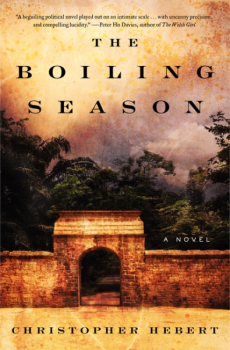 No, definitely not autobiographical. Outwardly at least. But inwardly there’s a lot I identify with in both. That’s part of the living in my own head. Getting to work through things that intrigue me. Playing around with voices and identities.
No, definitely not autobiographical. Outwardly at least. But inwardly there’s a lot I identify with in both. That’s part of the living in my own head. Getting to work through things that intrigue me. Playing around with voices and identities.
I think both of my novels grow out of a similar tension. I went to college at a place known for a fairly intense political atmosphere, but I grew up in a thoroughly apolitical family. It was interesting to me to go off to college and suddenly be surrounded by people determined to change the world. I left there really interested in what felt like the twin poles of the world I knew. On the one hand a sort of complacent suburbia. On the other, this radical scene.
Yes, I was really struck in this new book about how thoroughly fair it is. Even the corporate suit (a woman in this case) is delivered with fairness and a deep attention to her life and point of view.
Right. I never succeeded or really tried to become an activist. But I became fascinated by people who were. It makes me uncomfortable to shout and have loud opinions. I prefer to quietly observe. In different ways, I admire all the characters in the book. I think there are pieces of me in all of them. The ones that were the most fun to write were probably the ones who on the surface are the most dissimilar.
I actually thought I picked up a serious thread of critique toward the activists.
Yes, I can see that. You definitely see my own ambiguous feelings.
They seemed—particularly McGee—to be motivated by a deep selfishness. Or maybe a deep lack of self awareness.
I like that it gets complicated. It’s so hard to separate the personal from the political. I admire her intentions. But where the intentions come from interests me. And how they get twisted up with a sense of identity. I believe they’re operating in good faith. But at the same time, they’re flawed humans like everyone else.
Maybe a bit extra flawed?
There definitely comes a moment where that probably becomes true. And for me that’s the moment when the political gets overwhelmed by the personal. What I was working through was how difficult it really is to confront powerful forces and try to change them. And what happens as that difficulty mounts.
Like those characters in your book [A Working Theory of Love] burning down sex shops!
Exactly! I actually read a lot of books about and by ELF [Earth Liberation Front] as a model for those guys.
You get increasingly frustrated, and what started out as noble takes a dark turn.
But there is also the endless sense of urgency that needs to be sustained. Each action has to be a breaking point beyond which all is lost.
It’s one of the reasons I could never be an activist. Otherwise, people will go back to their lives.
I never see anything with enough clarity. I can never sustain the belief for long enough. I feel like that passion has to come from a place of absolute certainty. And I don’t seem to contain much in the way of certainty.
Let’s get back to the question of Detroit. What does Detroit mean to you as an American place? Or to put it more simply: why set this book in Detroit?
The book’s setting started out in its earliest days as more of a hybrid. It was part Syracuse, where I grew up. It was part St. Louis, where I’d just been living. Early in the book I have Darius mention hearing people on the radio talk about turning the city to farmland. That was something I’d first heard in St. Louis, the year before I moved to Michigan. Then I moved to Ann Arbor and heard the same thing about Detroit.
There’s a guy in Milwaukee [Will Allen] who’s gotten a genius grant for growing food in the city.
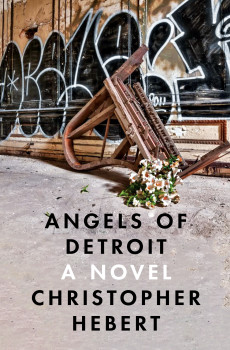 Right. There’s a ton of it going on at the small-scale level. The book started out as me grappling with that fantastical proposition. Or what seemed fantastical. But it also came from my childhood. I grew up in a place that was post-industrial. Losing jobs, losing economy. Losing people. My father had grown up in Syracuse too, and my childhood consisted of a lot of car rides with him pointing out the window at what used to be here and there. All of it gone.
Right. There’s a ton of it going on at the small-scale level. The book started out as me grappling with that fantastical proposition. Or what seemed fantastical. But it also came from my childhood. I grew up in a place that was post-industrial. Losing jobs, losing economy. Losing people. My father had grown up in Syracuse too, and my childhood consisted of a lot of car rides with him pointing out the window at what used to be here and there. All of it gone.
And that was not close to the scale of Detroit.
Detroit’s rise and fall is so dramatic. One of my first internet addictions was a site called “The Fabulous Ruins of Detroit.”
Oh, I know. That site is/was amazing. I once contacted that guy [while an editor at the University of Michigan Press] to see if he wanted to do a book about it.
I was really taken with the physical evocation of Detroit in the novel. We almost never get a sweeping view, but rather are on the ground—often the literal ground being gardened.
You feel that when you’re there in person. As you undoubtedly know.
I remember a place of endless lots and buildings and people wandering around as if in the aftermath of a great catastrophe.
The first time I went to Detroit, a couple weeks after I moved to Ann Arbor, I think I was going to a rock show. I got lost, because back then there were no street signs anywhere. I’d started out near Woodward, the center of it all, and then I took one wrong turn, and suddenly I was in Kansas. It’s hard to convey it to people who haven’t been there.
Kansas?
Maybe not so much Kansas then, because the ruins were still everywhere. This was back in 1999, and the city hadn’t yet begun the demolition push. So much has been cleared away that now it feels like you’re in the prairie.
Did they destroy Michigan Central Station?
I don’t think so. Some of the big things remain. It’s the neighborhoods where they’ve done the most clearing away. Blight clearance for crime prevention. When I started writing the book, I imagined having to explain all this to people who would have no idea what I was talking about. But it took me 15 years to finish, and the news caught up with me.
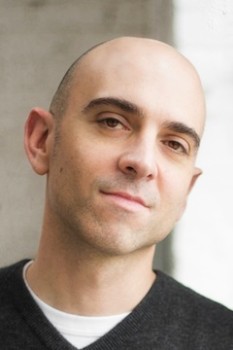 What has the response been to the book?
What has the response been to the book?
Interesting. Almost everything I’ve heard has been at one extreme or the other. On the one hand are the reviews and readers who see the book as being full of hope and characters striving for change. On the other is the view that the book is about the apocalypse. I can see both sides. There are certainly characters at the more apocalyptic end of things. But I was more interested in it as a book exploring characters just going about their lives. For me that’s the part of the Rust Belt narrative not often told.
The people going about their lives?
Exactly. The people who still live there.
And do you think there’s something noble to staying?
Not so much noble. Just that they do. For many it’s not a choice. They can’t afford to go. But the discussion about what to do about places like this often happen on a level far above the community itself.
That apocalyptic feeling you mentioned…I was doing a road trip and reading your book in the evening, but in the car my wife and I were listening to the Parable of the Sower. The parallels were remarkable.
I don’t know it.
It’s a post-apocalyptic novel by Octavia Butler. And it’s awesome. The world has fallen apart and people are fleeing the nation’s cities to try to start farming!
Another book that came to mind while reading Angels of Detroit was Zadie Smith’s NW. Something to do with point of view and the canvas of a city. Let me just get to the question: did you have any particular literary influences while writing this?
NW for sure. But I wasn’t all that conscious of influences because for a long time I didn’t know what I was doing. I had a big mess of a novel, with a lot of different voices and some converging story lines.
I did wonder if that chapter with McGee was a tip of the hat to David Markson, a writer you introduced me to when we were in grad school.
Ah, David Markson. Totally. There’s a rip off of William Gaddis in there too. And I was thinking about Franzen’s first novel, The Twenty-Seventh City. It’s not very good, but it was partly about the fall of St. Louis. It was Franzen in modernist mode, before he started ranting against “difficult” writers.
I’m about to put the words in print: “Hebert says Franzen novel ‘not very good.’”
Getting into rich territory.
Tweetable territory. Not that he’s on Twitter.
Only later did I see this coming together as a sort of panoramic bit of polyphony, à la NW. The portrait of a fractured and fragmented community.
Yes. And it comes together wonderfully. There’s a 19th century interest in the high and the low—the complete picture. But it’s very nimbly and artfully modern.
Definitely showing my fixation on modernists. Plenty of ripping off of Joyce, too.
What was it like to work on a book this long? You are not the same writer who started this.
For a long time it was frustrating. My ambition outstripped my ability. And I was stubborn and had no idea how to write a book.
I dearly regret my stubbornness. Yet maybe it’s necessary for a young writer?
I think so. Partly, though, this was a stubborn project.
Meaning it didn’t yield easily?
I’d set myself formal rules, and I was unwilling to break them. I wouldn’t let it yield.
I remember a more Ulysses-style segmentation of styles in workshop. Though to be fair this was in 2000, so my memory is likely off.
No, that’s right. I’d decided that each chapter would stand alone and be confined to one particular perspective. And it was important to me that I let each perspective find its own form. One consequence is that it’s hard to advance a story involving lots of characters when you can only work with them one at a time.
So…I’d be very interested to know the answer to this question: how do you think your time at Michigan changed you as a writer?
In some ways it made me more stubborn.
Truly? [Laughter.]
There were traditional storywriters [in the MFA program], and there were “experimentalists.” I’d never intended to be among the latter, but once I found myself there I think I dug in my heels.
We were all anxious and self-conscious. Trying to figure out what and who we were.
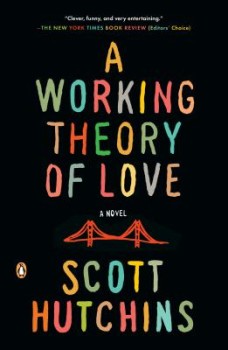 The anxiety of who we were, but also what we were doing with our lives. And then I never imagined I would be out of my MFA program for over a decade before I published a book.
The anxiety of who we were, but also what we were doing with our lives. And then I never imagined I would be out of my MFA program for over a decade before I published a book.
Me either! I was pretty sure I’d be famous within six months. [Laughter.]
I would have quit. I truly think I would.
Really? But you didn’t quit.
Well, it’s easy to say I would have quit. I really got the bug at Michigan. Writing became an integral part of how I live.
But it’s more than that. You didn’t have an easy path either. A Working Theory of Love wasn’t the first book you wrote, right?
Nope. I worked on another novel for a long time. I couldn’t sell it.
The only reason I didn’t have the same experience was because I couldn’t finish writing it. It was unpublishable. I needed fifteen years because that’s how long it took me to reconcile my experiment with the literary reality.
Do you find that you are easier on yourself now as a writer?
I feel like exhaustion has caught up with me a little. Both these books were marathons.
I’m not sure. Do you?
I’ve definitely gotten easier. I don’t beat myself up if I don’t write one day. And if I get my writing done in 45 minutes, I’m happy. I don’t chain myself to my chair. I tried that—especially as a Stegner fellow. And it just didn’t work. I need to live life, to have a reason to go out in the world. And I hope I’m looking less for validation and more purely at the quality of what I’m doing.
What’s interesting I think is how quickly we can replace the anxiety about physically writing with anxiety about our books out in the world. Ourselves as writers. Validation is the curse. That’s what I wish I could talk with my younger self about.
Me, too.
Instead I talk with my students about it.

